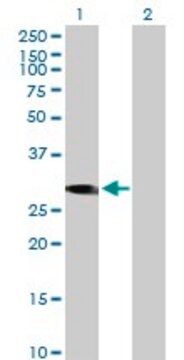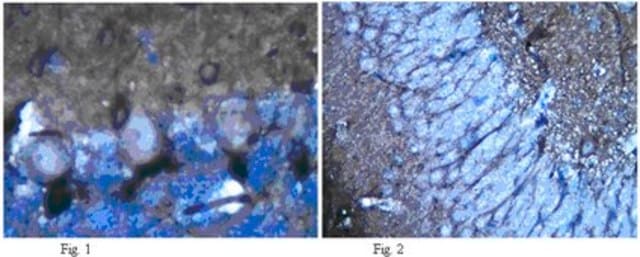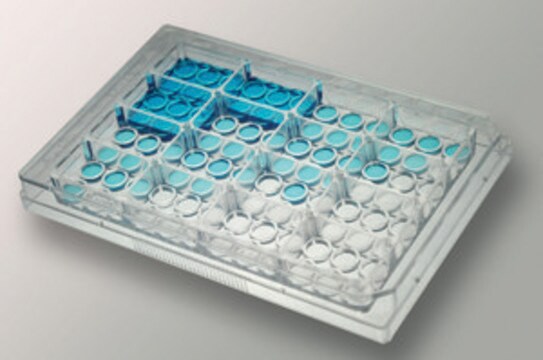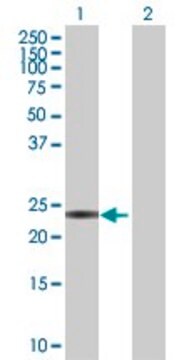SAB1400666
Monoclonal Anti-CIDEC antibody produced in mouse
clone 2E2, purified immunoglobulin, buffered aqueous solution
Synonym(s):
Anti-CIDE-3, Anti-FLJ20871, Anti-Fsp27
About This Item
Recommended Products
biological source
mouse
Quality Level
conjugate
unconjugated
antibody form
purified immunoglobulin
antibody product type
primary antibodies
clone
2E2, monoclonal
form
buffered aqueous solution
species reactivity
human
technique(s)
indirect ELISA: suitable
western blot: 1-5 μg/mL
isotype
IgG1κ
UniProt accession no.
shipped in
dry ice
storage temp.
−20°C
target post-translational modification
unmodified
Gene Information
human ... CIDEC(63924)
Related Categories
General description
Immunogen
Sequence
SVRKGIMAYSLEDLLLKVRDTLMLADKPFFLVLEEDGTTVETEEYFQALAGDTVFMVLQKGQKWQPPSEQGTRHPLSLSHKPAKKIDVA
Biochem/physiol Actions
Physical form
Not finding the right product?
Try our Product Selector Tool.
Storage Class Code
10 - Combustible liquids
Flash Point(F)
Not applicable
Flash Point(C)
Not applicable
Certificates of Analysis (COA)
Search for Certificates of Analysis (COA) by entering the products Lot/Batch Number. Lot and Batch Numbers can be found on a product’s label following the words ‘Lot’ or ‘Batch’.
Already Own This Product?
Find documentation for the products that you have recently purchased in the Document Library.
Our team of scientists has experience in all areas of research including Life Science, Material Science, Chemical Synthesis, Chromatography, Analytical and many others.
Contact Technical Service








